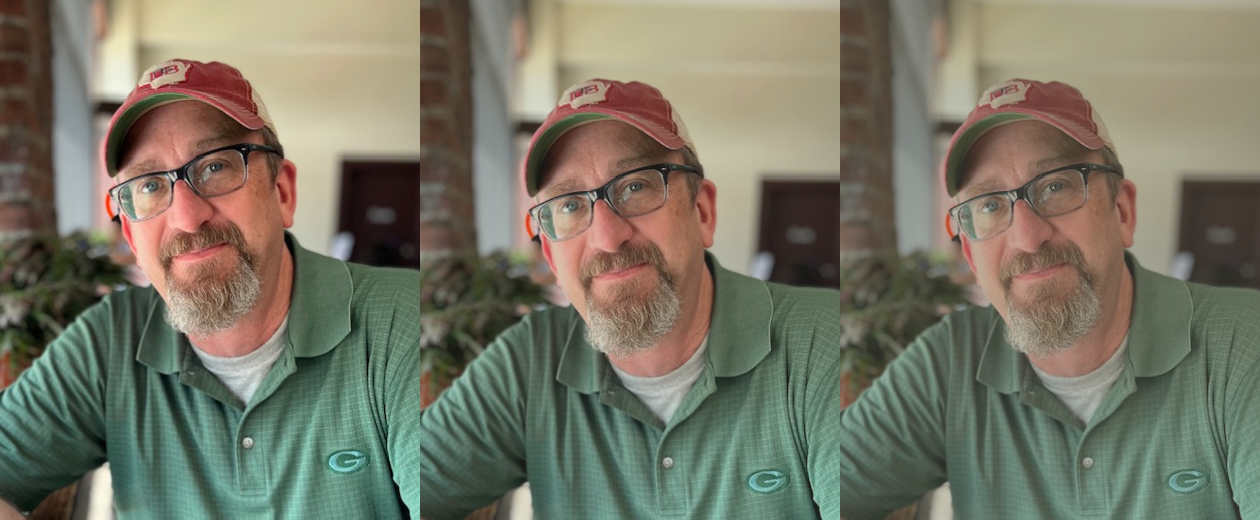One of my earliest memories is of sitting on my mother’s lap, past my bedtime, as she rocked me in her chair and watched President Nixon’s resignation speech. I didn’t understand the significance of the event at the time, but I reinterpreted it in later years both as a comforting reminder of my late mother’s love for me and as a pivotal point in American history.
In March of my sixth-grade year, our teacher announced to our class that President Reagan had been shot. I remember seeing my classmates, for reasons I didn’t understand, begin to clap and cheer until the teacher scolded them for their cruelty.
Even now, I recall the sick feeling in my stomach at the reprimand, from the strange reaction of my classmates and from the uncertainty about what might happen when the highest authority in our country was threatened.
As a young adult beginning a career in Catholic parish ministry, I learned about the Common Ground Initiative of Chicago’s Cardinal Joseph Bernardin. Conceived of and promoted by this progressive archbishop, Common Ground was designed to promote dialogue between liberals and conservatives in the Church and address its growing polarization. It was just the sort of movement I wanted to participate in, and I eagerly followed its development. I was dismayed to learn of its failure when conservative Catholics rejected its very premise, and, by extension, its founder, and refused to engage with their liberal co-religionists because their “error had no rights.”
Reagan survived, of course, to my and to our country’s great relief. But his later portrayal of America as the “shining city on a hill”, an image borrowed from the Puritans, annoyed me. I contrasted what I then thought to be the self-serving rhetoric of an elderly politician with what I was observing: that the promise and potential of the American idea were being squandered by its citizens who had entrenched themselves in warring camps. “What is wrong with these people?” I thought. In my parents’ generation and before, Americans viewed their lives and country through a lens of trust. When I came around, cynicism and suspicion seemed to have taken over.
Now, well into middle age, I have had some time to reflect on those formative experiences and have become a bit less of a misanthrope! I learned gradually that part of my task as a Christian minister is to provide hope, to find the good, and praise it, both among fellow Catholics and with family and friends of any or no faith. In the end, I am one of “these people” – flawed, a sinner, in the language of my faith; guilty of refusing to extend kindness and charity to those with whom I disagree or dislike…yet in the next moment, without any warning, able to be a conduit of grace and even a blessing for them. They and their stories are the holy ground which on approaching, I take off my shoes.
So here are five things I’ve learned about America – and thus about myself:
- America is divided.
We can be most deeply divided from those closest to us. We’re experiencing an epidemic of loneliness and disconnection. Within our families and workplaces, there is an unwillingness to charitably disagree – culturally and politically. We are a fragmented people, and our phones aren’t helping. Whole sections of conversation are cut off, one from another, because of stubbornly held views reinforced in digital cul-de-sacs.
- Americans care.
We all see examples of people bearing witness to hope as they care for others. More so than many of our civic leaders who ought to demonstrate it, they show servant leadership to those who are lost, lonely, forgotten, and neglected. I see it daily in the people I serve in ministry. Charity and love are the path toward justice, which I try to follow as a Christian.
- America is more tolerant.
Younger generations seem less inclined to judge someone different as inferior. Almost thirty years ago, the adoption of a child of a different race was seen as an act of charity by my wife and me toward a needy child rather than the result of our simple, natural desire to become parents, just as any biological parent wants. Almost thirty years ago, such adoptions were controversial, and indeed, they were before that. Now, they are much more commonplace. Parents’ motives for adoption are far less criticized.
- America is evolving and changing.
Over and over in our nation, we see the pattern of death and rebirth. Dying and rising – the old slips away to give way to something new, something transformed, followed by its eventual death, and the cycle continues. This sacred rhythm is deeply embedded in nature and humans and emerges in our collective project. There’s been a change in how Americans view other human beings: no longer as commodities but as fellow human beings of immeasurable worth. Human enslavement, embedded in our constitution’s very creation, was abolished. The resulting period of promise for Black Americans was followed by a long period of cruel retrenchment. Later, with the Civil Rights Movement, the horizon of hope grew closer even while the stain of racism and its effects persisted. As a transracial family, we have developed a particular appreciation and sense of hope in this pattern.
- America is at its best when its pride is tempered by humility.
A sitting President steps away from his party’s nomination for re-election office for the sake of unity and for the nations good. The United States is “the indispensable nation”, but proper humility will help us choose the right solution to problems and refrain from harmful, reflexive responses. I am not always proud of everything that is done in my name as an American (e.g., how our government sanctioned torture in the years after 9-11). Nevertheless, I am immensely grateful to be a citizen and to share that identity with so many others. Gratitude is essential to avoid becoming bitter, nihilistic, or greedy; strains of each plague our national character and my own. For me, as a Christian, gratitude is the path to becoming holy – to become whole – which is the only worthwhile pursuit.

